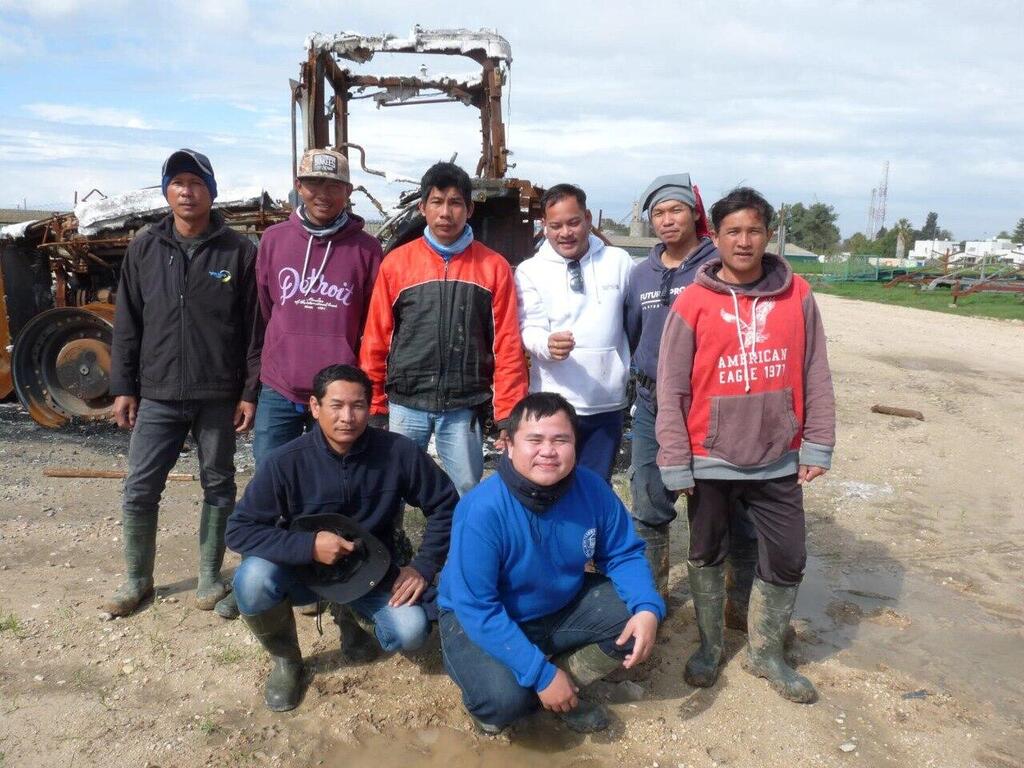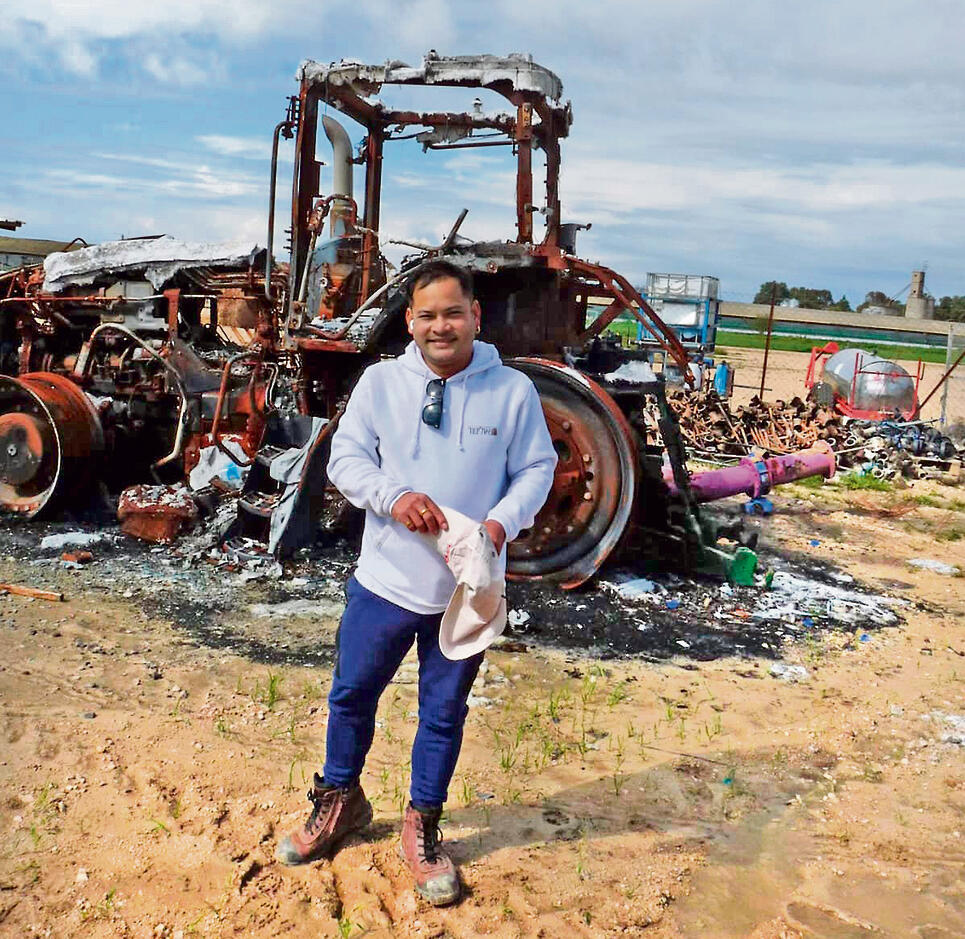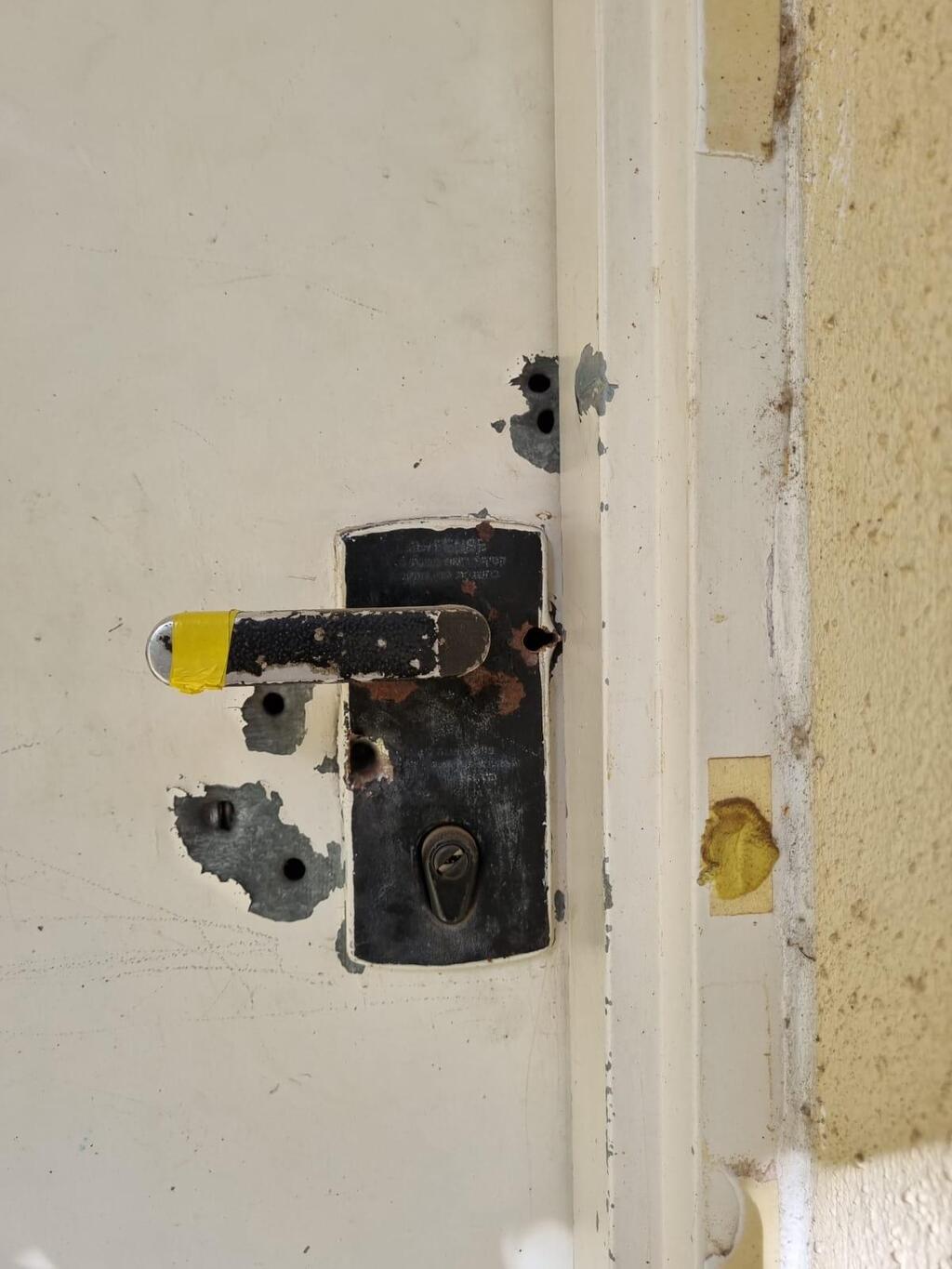Getting your Trinity Audio player ready...
On Sunday morning, under the bright winter sun near the border with Gaza, warm and optimistic, marigolds are in bloom along the access road to Kibbutz Nahal Oz. The soldiers shed their coats, while only the Thai workers cover every inch of their skin: in war and in peace, they are devoted to sun protection.
Read more:
Bobby Sorapot is the leader of the Thai workers. On October 7, he and his colleagues were attacked twice by the terrorists and looters who raided the kibbutz. One of them was killed. Bobby and his colleagues went home to Thailand, and after two and a half months, they purchased flight tickets and came back to work on the kibbutz. Their return from Thailand is yet another unimaginable story that the war has brought forth.
Members of Nahal Oz are still living further north, away from their homes and only soldiers and Thai workers are there.
Sorapot is the only one in the group who speaks English, sprinkled with the right words in Hebrew. He drinks Arabic coffee, like the kibbutz veterans. He wears a wide brimed hat to shelter his face which end with a piece of fabric that falls low on his back, like the hats of the French Foreign Legion.
"I'm from Udon Thani, a province in northeastern Thailand, a stone throw away from the Laotian capital of Vientiane. I came to Israel three years ago. My first destination was Zichron Ya'akov, where I worked in agriculture for eight months. Nahal Oz was my second stop," he says. "Nahal Oz offered a lot more money."
The housing for the Thai workers is located near the western border of the kibbutz. Just under a kilometer away is the wall that was constructed but couldn't withstand the onslaught from Hamas. Beyond that wall lies Shijaiyah, a city that was with a population of 100,000, which now stands in ruins as a suburb of Gaza.
The kibbutz offers a clear view of the devastated landscape of Shijaiyah, illuminated by the sun after rainfall. From one of the neighborhoods, plumes of black smoke can be seen rising, a result of the IDF's military actions, while in the background there are intermittent sounds of explosions, airstrikes, and tank shells. The Thai workers' living quarters are where clothes are hung on clotheslines to dry, making it the only place in the kibbutz where laundry can be seen.
"On October 7, someone from Kibbutz Sde Nitzan was supposed to give me a ride to work an extra job. In the morning, we hears the sirens and the rockets. I knew what that meant. But this time, it felt different. We went into the shelter. After a few minutes, we moved to our room, where there is a safe room."
Every three Thai workers in the kibbutz share an apartment, and each apartment has a safe room. "The shooting started. I thought it was our own army shooting. And then we saw other people, civilians, walking around the kibbutz. I tried to call the security chief in charge, but I couldn't reach him. He was killed," he says.
"They tried to break into the safe room. They broke the window. They were in the apartment for about 40 or maybe 50 minutes. They smashed everything they could and then left. After that, looters arrived. They stole whatever they could find and then left. I pleaded for help on the phone, asking them to save us. At five in the afternoon, the army finally showed up."
Did the Thai embassy order you to return home?
"No, they didn't order," he says. "They offered. They told us to take a break, a timeout. They said we could come back. So we went home. I stayed at home for two and a half months. During that time, I kept in touch with my kibbutz friends by phone. Eventually, I bought a ticket and returned. Others also came back. From the airport, I went straight to the kibbutz."
How did your friends receive you?
"Everyone hugged me," he says. "Some were even crying."
The kibbutz renovated the Thai workers' living quarters. Boaz Ben-Sira, the farm manager, made sure to replace all the equipment that was damaged. Thai food awaited the returning workers.
How was the first night?
"On the first night, I couldn't sleep," he says "I was afraid. Everything around me was shattered."
The kibbutz employed workers from Gaza before October 7. What do you think about the attackers?
"I don't understand," he says. "Explain to me, why did they come to kill us? They were our friends. We worked together. We provided them with water. We gave them things."
Should they be allowed to return to their homes beyond the border?
"I don't think so," he says. "They shouldn't come back."
The kibbutz is currently facing a threat from the dogs of Gaza, which have become wild in the ongoing war. These dogs have devoured six calves on the kibbutz. The law prohibits killing them. "Killing Arabs is allowed; killing dogs is not," one of the kibbutz leaders remarks.
To address this issue, the kibbutz has established a feeding station for the dogs. The aim is to attract them with food, capture them, and then hand them over to veterinarians. The kibbutz plans to set up additional feeding stations in the future.
The kibbutz's barn housed 400 milking cows, a quarter of whom were affected on October 7th. Some were killed, injured, or traumatized, causing them to stop yielding milk. The recently inaugurated milking facility was also damaged. It was partially burned and the milk tank was shot up. As a result, there was an eight-day halt in milking operations, resulting in a significant loss of over $400,000 in milk production. However, the kibbutz managed to resume milking with the help of volunteers. They have now established a permanent team.





